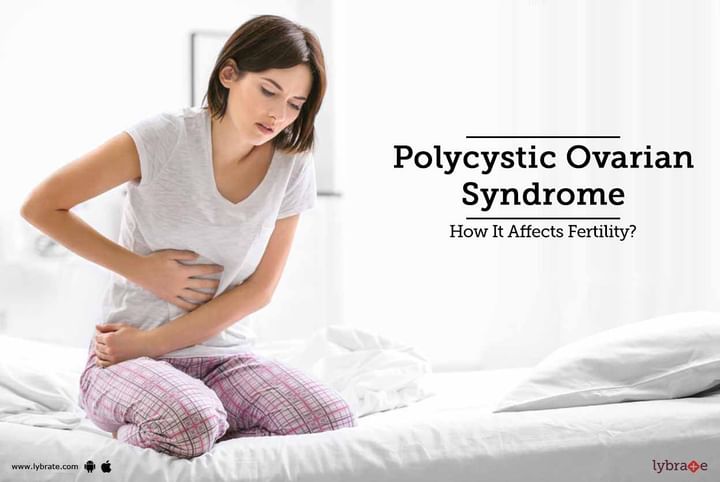Polycystic Ovarian Syndrome - How It Affects Fertility?
Polycystic Ovarian Syndrome (PCOS) is a condition in which a number of fluid filled sacs or cysts grow in the ovaries. This leads to an imbalance in the reproductive hormones of the woman, causing an increase in male hormones, especially testosterone. These cysts are immature follicles which fail to rupture and release the containing egg inside during the menstrual cycle. This lack of ovulation leads to altered levels of estrogen, progesterone, follicle stimulating hormone and luteinizing hormone, which in turn causes disruptions in the menstrual cycle leading to irregular or absent periods.
Some of the most common symptoms of polycystic ovarian syndrome are:
- Irregular menstrual cycle – including infrequent periods or absent periods (called amenorrhea) or excessively heavy periods.
- Hirtruism – Excessive hair growth on the face and body
- Severe or persistent acne
- Weight gain and obesity
- Patches of thick, dark skin on the body
- Infertility
Women with PCOS are at a higher risk of developing type 2 diabetes, high blood pressure, metabolic syndrome, sleep apnea, mood disorders and most commonly, infertility and pregnancy complications.
PCOS has been found to be the leading cause of infertility in women, and can often go undetected. PCOS can adversely affect a woman’s fertility due to a number of reasons:
Hormonal imbalances
PCOS disrupts the normal levels of hormones like estrogen and progesterone in the body and increases the levels of androgens or male hormones in the body. This leads to irregular and unpredictable periods, which make it difficult for women to get pregnant. Also, imbalance in hormones can lead to the uterine lining not being formed properly, which prevents implantation.
Problems with ovulation
Hormonal imbalances prevent the eggs contained in the ovary from maturing and being released into the fallopian tubes. As a result, they remain as immature follicles inside the ovaries instead of being available for fertilisation by male sperm. This makes it difficult to get pregnant.
Women with PCOS not only have problems getting pregnant, but may suffer from greater risk of complications during pregnancy such as miscarriages, premature births, high blood pressure during pregnancy, and multiple births.
Even though PCOS can have negative effects on the fertility of a woman, it can be treated and controlled using medication and lifestyle changes including diet and exercise. Further, infertility treatments can also help in cases where PCOS medication does not resolve the problem. In case you have a concern or query you can always consult an expert & get answers to your questions!



+1.svg)
